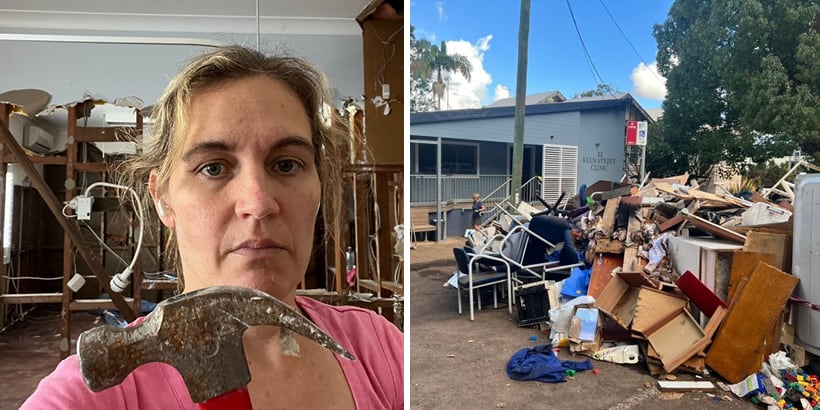
Time to invest in healthcare
May 13, 2022
Ensuring healthcare access in a natural disaster
May 13, 2022FEATURE
Stop using the word “unprecedented”
Dr Nina Robertson, a GP in Lismore, recalls the events that made her lose everything in her clinic
Whilst speaking with Dr Nina Robertson, Lismore was currently facing a second wave of rising flood waters only weeks after the town had just gone under. The strain was evident in Dr Robertson’s voice and reflected the general feeling in the community.
Residents are feeling angry, anxious, frustrated, and very uncertain, she said, adding that there was concern the river would rise over the levee once again.
Dr Robertson is a GP at Keen Street Clinic. In early March, when the first floods hit, she thought their flood preparation plans were going to be enough with the weather information they were given. In the 70 years the clinic has been operating, water had never entered the main clinic.
“We had moved all of our records to the highest property of the clinic the night before, being 13-metres floor height, along with our offsite computer and back-ups,” Dr Robertson said.
With predictions constantly being revised overnight, Dr Robertson received a call at 5am from her practice manager informing her that waters were now expected to rise to 12.5-metres, meaning there was every chance water would flow over the carpet of the main clinic.
With her colleagues stranded by the floodwaters in their homes, Dr Robertson – who’s house is located on a hill – was the only one in a position to check on the practice.
Dr Robertson and her partner rushed out to retrieve the clinic’s equipment. However, pitch-black darkness and torrential rain prevented her from safely boating there.
By the time the sun came up an hour later, she realised they were too late – the practice was completely flooded, and everything was gone.
Had the flood predictions been more accurate, Dr Robertson said they would have altered their flood preparation plans.
Since then, Keen Street Clinic has been providing medical care out of makeshift facilities. The team was initially redeployed to the Southern Cross University Evacuation Centre in a volunteer capacity, and then moved to doing subsidised work which was partly funded by the Primary Health Network. Two-weeks later they opened their temporary clinic rooms at St Vincent’s Hospital in Lismore, which was where they were working at the time of writing.
Dr Robertson states that unless there is more Government support and funding, Keen Street Clinic will not be able to rebuild anytime soon.
“The support from the community outweighs the support from the Government,” Dr Robertson said. “As a community, everyone makes responsible flood preparations beforehand, and we all come together for the aftermath and clean-up as we’re so used to it by now.”
Moving forward, Dr Robertson wants the Government to make health a priority in its disaster response plans.
She also believes we need to stop using the word “unprecedented”.
“Using the word “unprecedented” gives an excuse to do business as usual. We need to rephrase that, and then we need to plan for the disaster response in line with the fact we do get disasters in this country, they are precedented, and they happen every year or two – sometimes even twice a year – so why haven’t our disaster responses caught up with that yet?”
“These floods were precedented months ago – disasters like these are always precedented. Now it’s just inexcusable to keep saying, ‘Nobody could have predicted this.’ We must expect catastrophic natural disasters, because that’s what we’re seeing now, especially with this second wave so soon after the first. Let’s expect it and let’s plan for it.”

